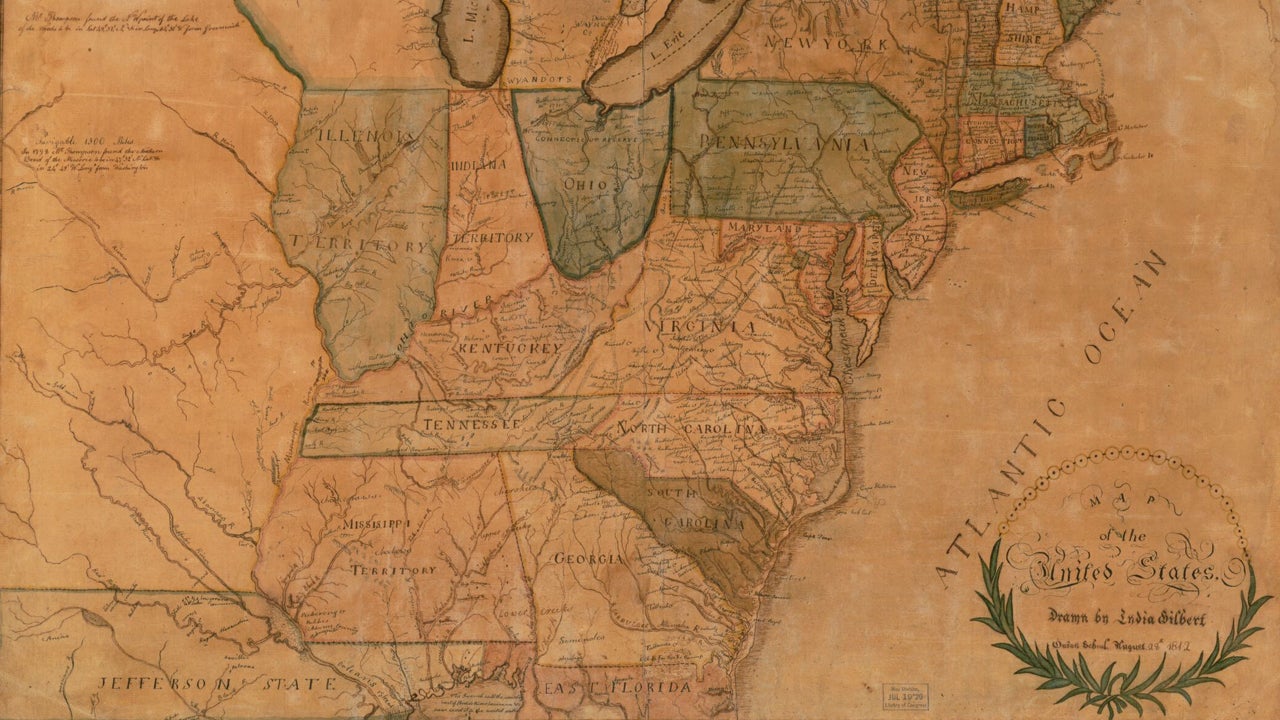
History
American Heritage: From Colonial Settlement to the Current Day
10 lessons
11h total length
Create Your Account to Get Instant Access to “American Heritage: From Colonial Settlement to the Current Day”
Deepen your understanding of American history.
Lessons in this course

30:34
lesson 1
The Study of American History
America’s Founders had a unique opportunity to start government anew—while drawing on the accumulated knowledge and experience of Western Civilization, from ancient Greece and Rome to the English constitutional tradition. Based on principles of equality and consent, the Constitution secures the rights and promotes the happiness of all citizens. The great controversies of American history—including the current crisis of progressivism—have centered around the meaning of those principles.

43:28
lesson 2
Colonial Settlement
Nearly 170 years passed between the founding of the first colony in Jamestown, Virginia, in 1607 and the Declaration of Independence. Many of those who settled in the colonies during this period sought to escape persecution and to live a life according to their religious beliefs. A consideration of the writings of John Winthrop, William Penn, and William Byrd helps to illuminate early American colonial history.

33:35
lesson 3
Enlightenment and Great Awakening
During the colonial period in both Britain and the American colonies, the existing religious establishment was undercut by a religious revival which embraced and preached the importance of religious enthusiasm. This Great Awakening, as it is called today, inspired self-confidence, less dependence on authority, and helped to prepare the way for the Enlightenment. The lives of George Whitefield and Benjamin Franklin exemplify the Great Awakening and the Enlightenment, and also the connection between these two important historical developments.

36:48
lesson 4
The American Founding
In the 1760s, the British Parliament sought to exert its control over the quasi-independent American colonies by imposing taxes on them. However, the colonists, who had long since managed their own affairs, saw these actions as an attack on their natural rights and their rights as Englishmen. On July 4, 1776, the Americans declared their independence and founded a new nation.

32:09
lesson 5
Jacksonian Democracy
The era of Jacksonian Democracy—which stretched from the early 1800s to just before the Civil War—was characterized by several prominent national issues that were the subject of great controversy, including the rise of evangelical religion and the problem of slavery. This period also saw the rise of individualism and great advances in technology, as the nation expanded ever further westward.

33:43
lesson 6
The Crisis of the Union
The crisis of the Union that culminated in the Civil War had its roots in a fundamental disagreement over the meaning of the Declaration of Independence. Some prominent politicians, including Stephen Douglas, argued that the Declaration’s principles applied only to white men, and the solution to the slavery problem was popular sovereignty. Abraham Lincoln, by contrast, believed as the founders did that those principles are universal and timeless, and that they pointed toward slavery’s eventual abolition.

33:01
lesson 7
Western Expansion
The Northwest Ordinance is an essential part of western expansion in the United States. One of the four organic laws of the United States, the Ordinance, which was passed in 1787, protected civil and religious liberty and prohibited slavery. This early expansion, made possible by the Ordinance, and subsequent explorations of the West, including most notably the Lewis and Clark expedition, laid the groundwork for American expansion further westward.

33:08
lesson 8
Progressivism
Near the end of the nineteenth century, Progressive political theorists began to view the principles of the American founding as archaic and obstructive. They argued that the modern age brought with it new problems, which required new principles, as well as a move away from the republicanism of the founding to a state ruled by administrative experts. Progressivism came to dominate American politics in the 20th century, and remains a powerful political force today.

38:49
lesson 9
America as World Power
Both George Washington and Thomas Jefferson warned against permanent entangling alliances. Yet, as the United States grew economically, and as challenges to domestic security arose from abroad, America’s role on the world stage changed dramatically. Over the course of the 20th century, America grew to become the preeminent global power.

40:39
lesson 10
Post-1960s America
In the twentieth century, technological advances brought material prosperity, but also made the threat of large-scale modern war ever-present. To counter this threat, government must craft proper policy towards other nations and employ deterrents to war. With the rise of the administrative state and of the belief in scientific progress, politicians began declaring war on conditions of human life that the American founders thought were permanent. Both kinds of war pose a threat to liberty, as they require tremendous resources and impose great burdens on the citizenry.
Enroll in "American Heritage: From Colonial Settlement to the Current Day" by clicking the button below.
What Current Students Are Saying
Takes the student through the full context of the course subject matter. Wonderful insight into how we strayed and its consequences and offers a solution.
Create your FREE account today!
All you need to access our courses and start learning today is your email address.